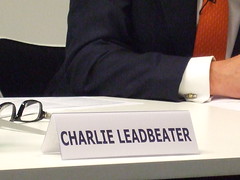Here’s what I tagged on del.icio.us between July 23rd and July 30th:
- Web curbs for Olympic journalists – What a surprise…
- Plenty of Blame to Go Around in Yahoo Music Shutdown – Ed Felten knows who to blame, and I agree with him entirely.
- Exploit code targets Mac OS X, iTunes, Java, Winzip… – nasty little piece of software called Evilgrade that uses a man in the middle attack to exploit automatic update code.
- Consultation on legislative options to address illicit P2P file-sharing – BERR – UK government consultation opens..
- How to make our newspapers profitable again: David Aaronovitch Simulator | The Wardman Wire – ah, how entertaining…
- Google Knol is evil | Seldo.Com Blog – Hard-hitting analysis: is Knol Google's 'IE vs Netscape' moment?
- Rocque London Index Map – Useful for anyone reading Neal Stephenson's Baroque Trilogy, especially The System of the World
- AWS Service Health Dashboard – Amazon S3 Availability Event: July 20, 2008 – "With a large number of servers gossiping and failing while gossiping, Amazon S3 wasn't able to successfully process many customer requests" Excellent explanation, and good communication with customers
- xkcd – A webcomic of romance, sarcasm, math, and language – By Randall Munroe – Ah yes… 🙂
- Ofcom report into Social networking usage – some reading for us all I think
- DRM still sucks: Yahoo Music going dark, taking keys with it – And yet the music industry wants ISPs and government to sustain their broken business model…
- Announcing the Open Web Foundation – Open Web Foundation – Could be useful
- Read Giles Coren's letter to Times subs | Media | guardian.co.uk – I didn't expect to, but I agree with him
- Cuomo strong-arms Comcast over Usenet | The Iconoclast – politics, law, and technology – CNET News.com – Nice analysis of a dangerous tactic
- MySQL forks: could Drizzle be the next of the new generation of relational database? | O'Reilly News – Seeing a major system fork is like watching close friends divorce. Wish them both well…



